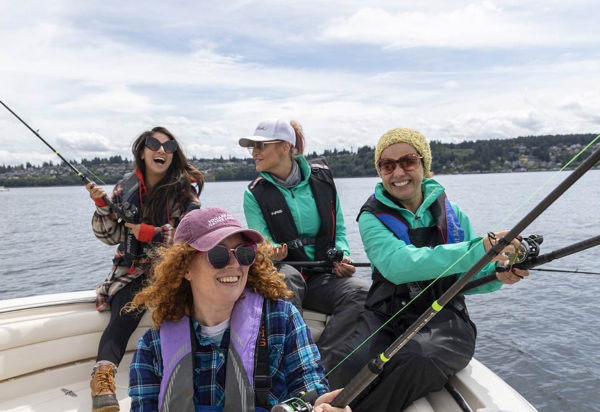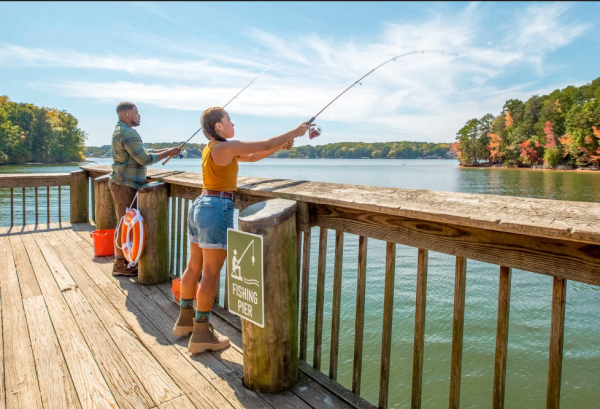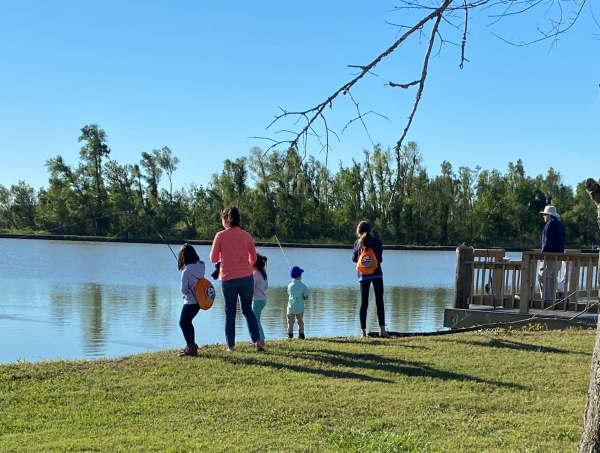
Bringing new anglers into the sport as well as returning lapsed anglers and boaters to the water has been key for programs like the Recreational Boating and Fishing Foundation, now axed by DOGE cuts.(RBFF)
Whatever your politics, chances are some of your favorite government-supported programs are under threat from Washington’s latest budgetary buzzsaw. Operating under the banner of the newly formed Department of Governmental Efficiency (DOGE)—a Musk-era legacy effort designed to "streamline" federal spending—a wave of cuts is sweeping across agencies. Ironically, many of these cuts were first proposed by Elon Musk’s advisory group before Musk himself was canceled in a very different arena.
One of the more painful casualties for America’s outdoor community is the elimination of $13.7 million in federal funding for the Recreational Boating and Fishing Foundation (RBFF), a nonprofit that has played a role in keeping fishing and boating alive for new generations. RBFF is best known for national outreach efforts like Take Me Fishing, Vamos a Pescar, and collaborative events with state wildlife agencies aimed at encouraging fishing among families, youth, women, and minorities.
Without this support, that effort is grinding to a halt.
RBFF Chief Operating Officer Stephanie Vatalaro confirmed the organization was forced to pause its core programs and furlough eight of its 16 employees as of June 6. The remaining staff, she said, is likely to be let go soon. And while the federal grants that funded RBFF have been in place since 1998, there’s no guarantee they’ll return under the current federal efficiency initiative.
On the surface, the cut may look like a prudent trimming of fat—a discretionary program axed in the name of fiscal discipline. But peel back the curtain, and the reality is far more complex—and arguably, self-defeating.
A Misunderstood "Cost"
The $13.7 million in federal funds RBFF received in 2024 didn’t come from the general taxpayer base. Instead, the program was funded entirely through user-paid excise taxes on fishing tackle, motorboat fuel, and boating equipment. These taxes—typically 10–11% added to purchases of rods, reels, lures, trolling motors, and outboard fuel—generated over $206 million in 2023 alone.

Angling recruitment and retention are a key part of the RBFF program, including bringing young urban anglers to the water. (RBFF)
That money flows into the Sport Fish Restoration and Boating Trust Fund, a dedicated fund managed by the U.S. Fish and Wildlife Service (USFWS) to support conservation, public access, fishery management, and outdoor education.
In short: it’s a self-sustaining system. Anglers and boaters pay into it. Agencies like RBFF help recruit and retain those anglers and boaters. And the resulting economic engine helps fund wildlife departments, boat ramps, fish hatcheries, and more.
And the entire sportfishing and recreational boating industry also supports millions of jobs as well as being a critical link to the tourism industry in many areas.
So cutting funding to RBFF doesn’t save taxpayer dollars. It simply redirects money already earmarked by law—and that redirection may not benefit the fishing and boating public.
A Legal Mandate
RBFF was created specifically to fulfill a mandate by Congress under the 1998 reauthorization of the Sport Fish Restoration Act. The mission was to partner with the USFWS in promoting fishing and boating participation and to help state agencies maintain a healthy license base—critical to their survival.
Participation in fishing had been steadily declining for decades until RBFF helped reverse the trend. According to its internal data and third-party reviews, fishing participation hit an all-time high in recent years, with more than 55 million Americans casting a line annually.
Admittedly, the peak came during the covid years when everybody had time off and government money to spend. It is now slowing.
But in general, water-related recreation makes a very large contribution to the U.S. economy.
That participation supports a broader outdoor economy valued at $230 billion in boating and $129 billion in fishing, sustaining nearly 2 million jobs nationwide and generating billions in state and local tax revenue.
Bigger Than a Hobby

While fishing and boating are recreational pursuits, they affect the bottom line of thousands of U.S. businesses. (RBFF)
This isn’t just about catching bass or cruising the bay on a Saturday afternoon. The fishing and boating industries are deeply interwoven into the American economy, especially in rural and coastal communities where tourism and outdoor recreation are major lifelines. Without continued efforts to bring new users into these activities, the long-term sustainability of those industries—and the conservation efforts they fund—is at risk.
Critics of the cut point out that while RBFF’s effectiveness can always be debated (as can any outreach program), what’s not up for debate is the rightful use of the excise tax funds. When those funds are no longer used to support access, education, and recruitment—as originally intended—and instead begin flowing elsewhere—maybe even toward pet projects in politically favored districts, it becomes a bait-and-switch on American sportsmen and women.
A Question of Trust
The danger here isn’t just in the loss of RBFF’s programs. Hunters, anglers, and boaters have long supported excise taxes on their gear, knowing those dollars would go back into the resource. That "user-pays, user-benefits" model is what has made American conservation efforts the envy of the world.
Take that promise away, and you take away the incentive for sportsmen to continue supporting it. And perhaps to stop supporting the politicians who allowed it to be deep-sixed. While some universal belt-tightening is obviously in order at the federal government, doing it with money paid in specifically to support the fishing and boating industry is a bad deal that benefits no one.
-- Frank Sargeant
Frankmako1@gmail.com